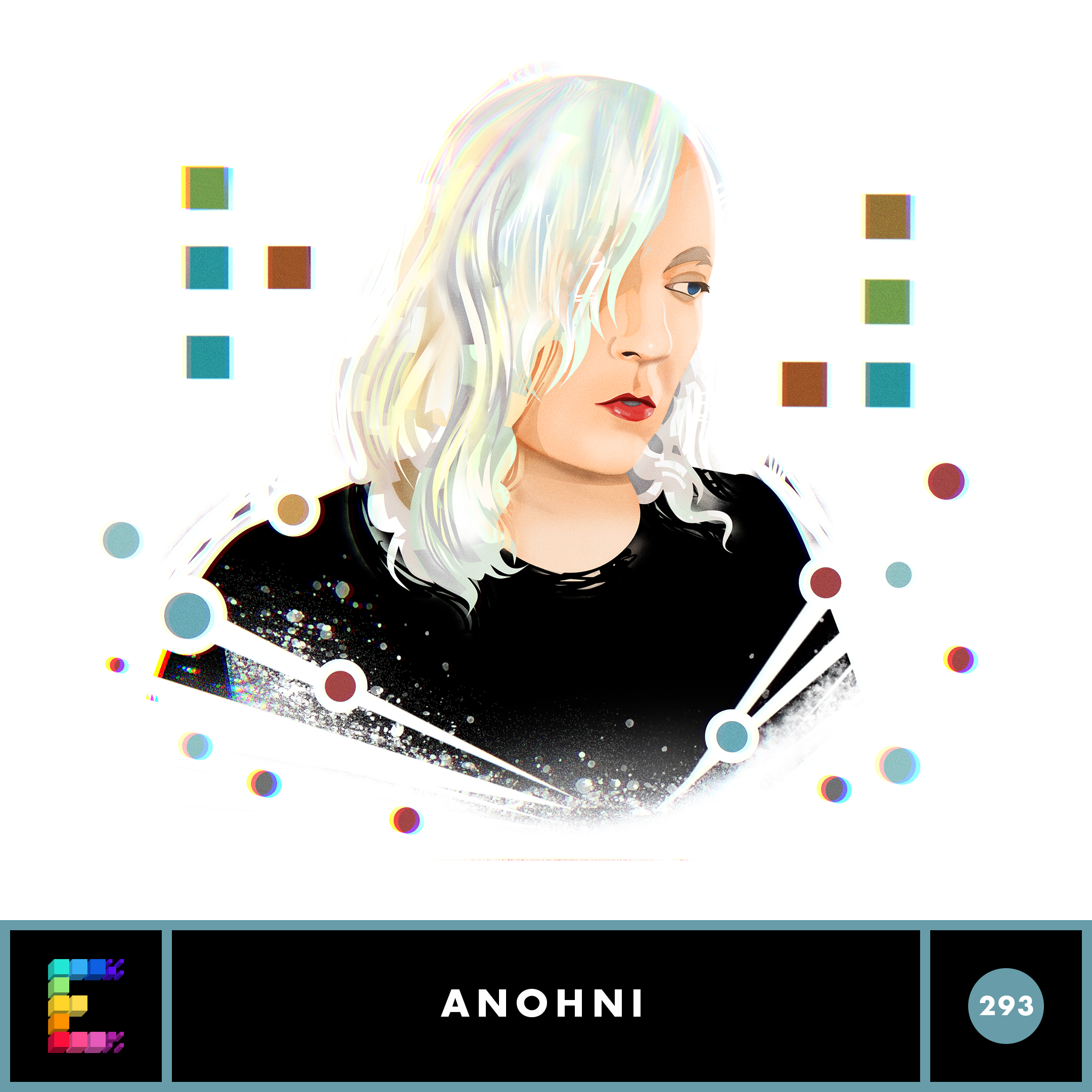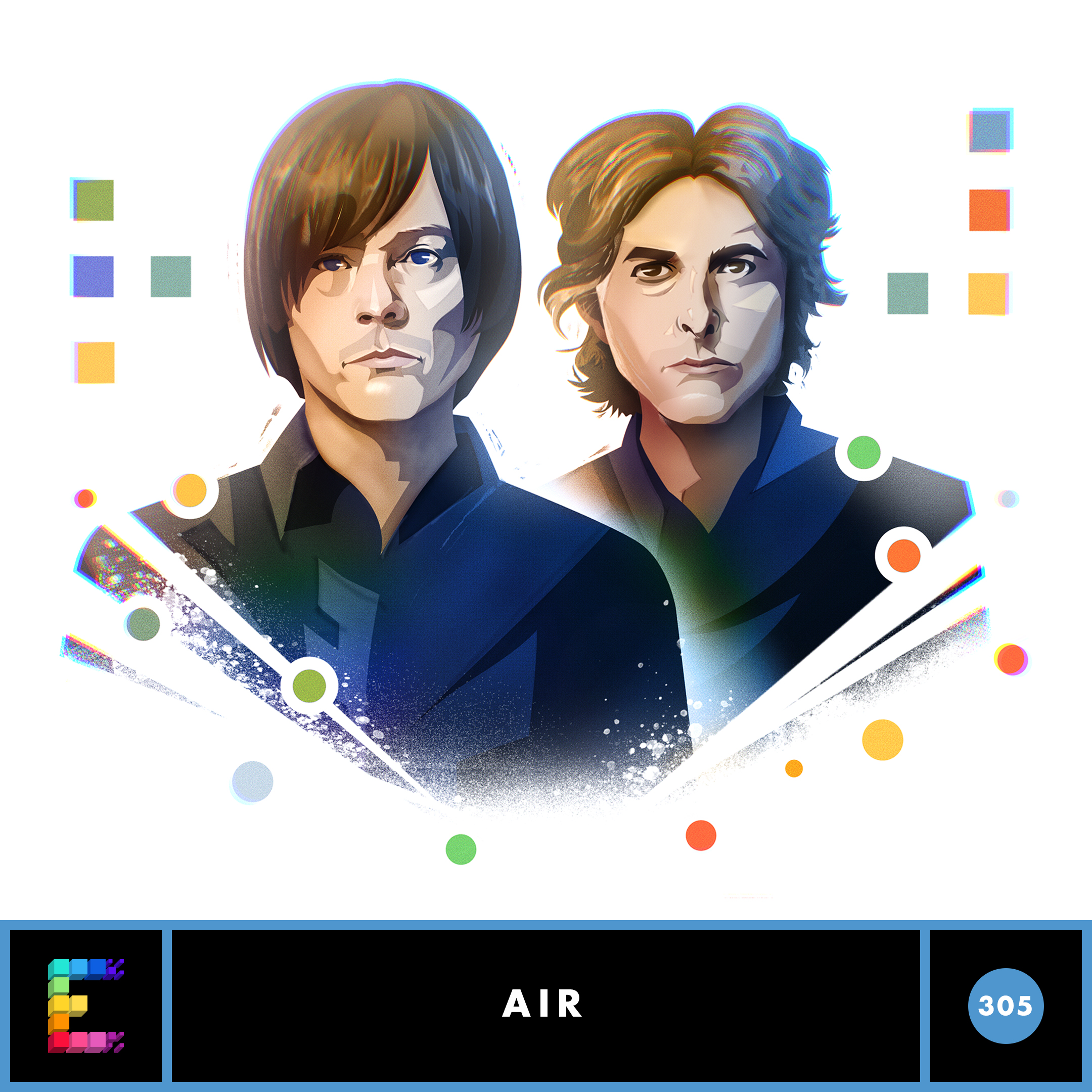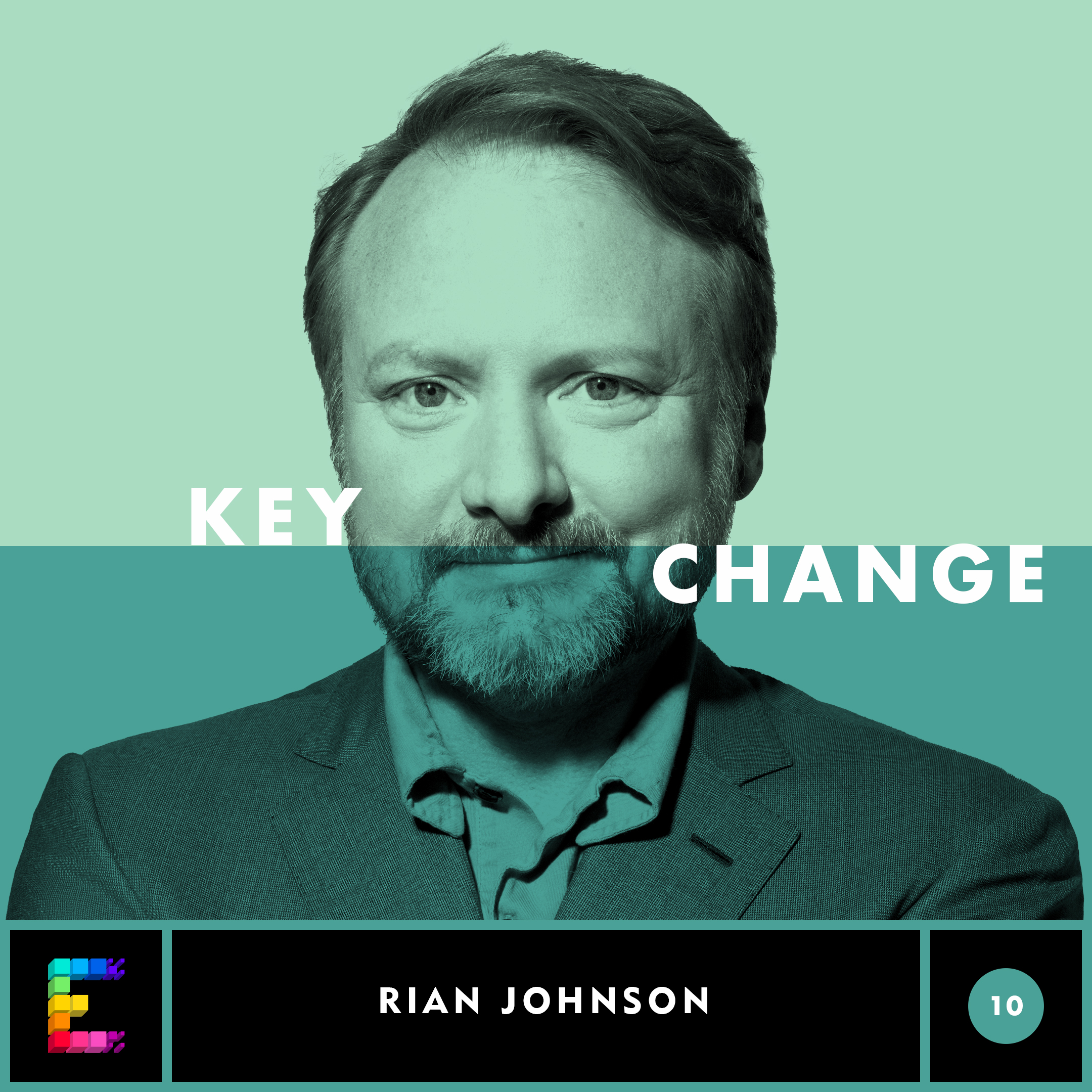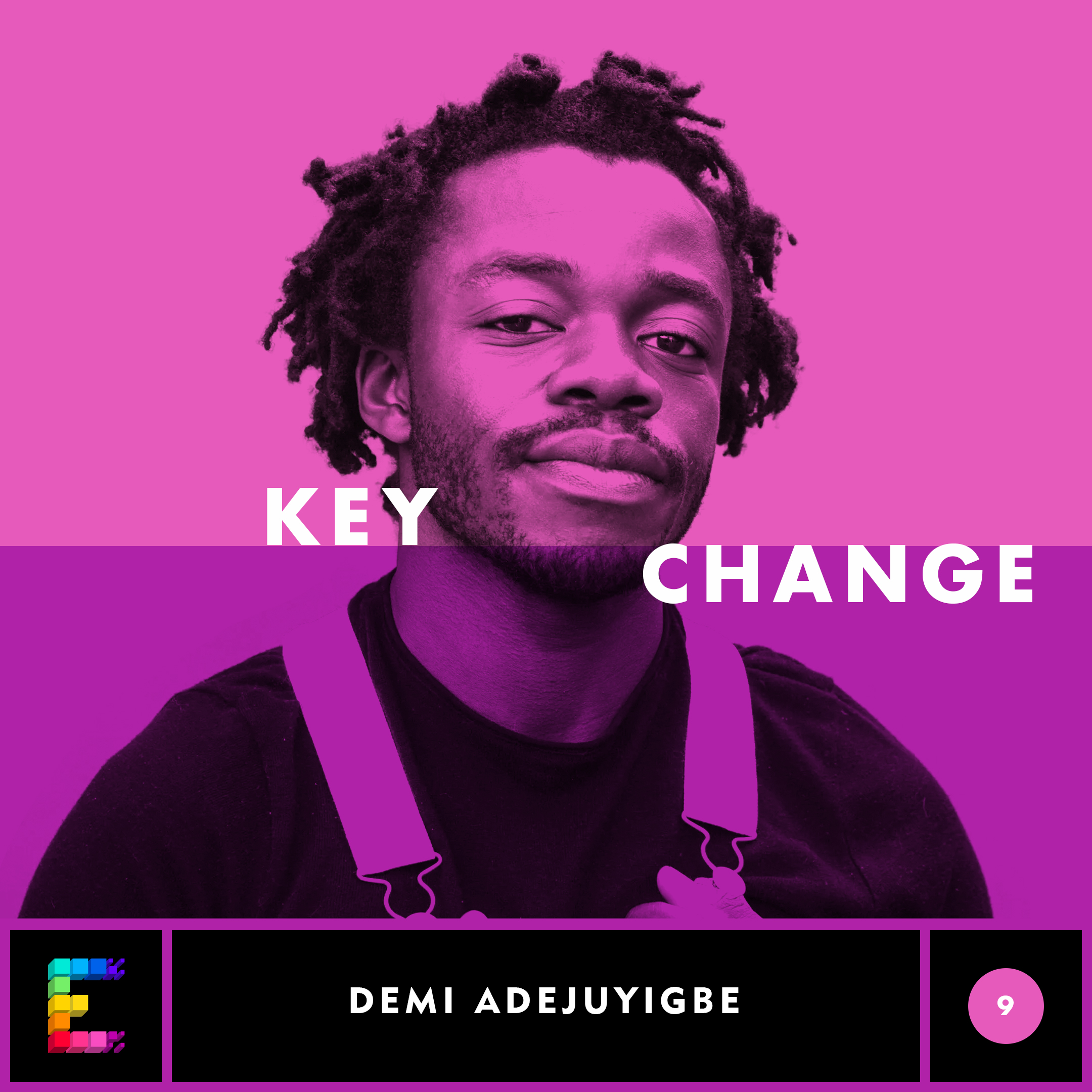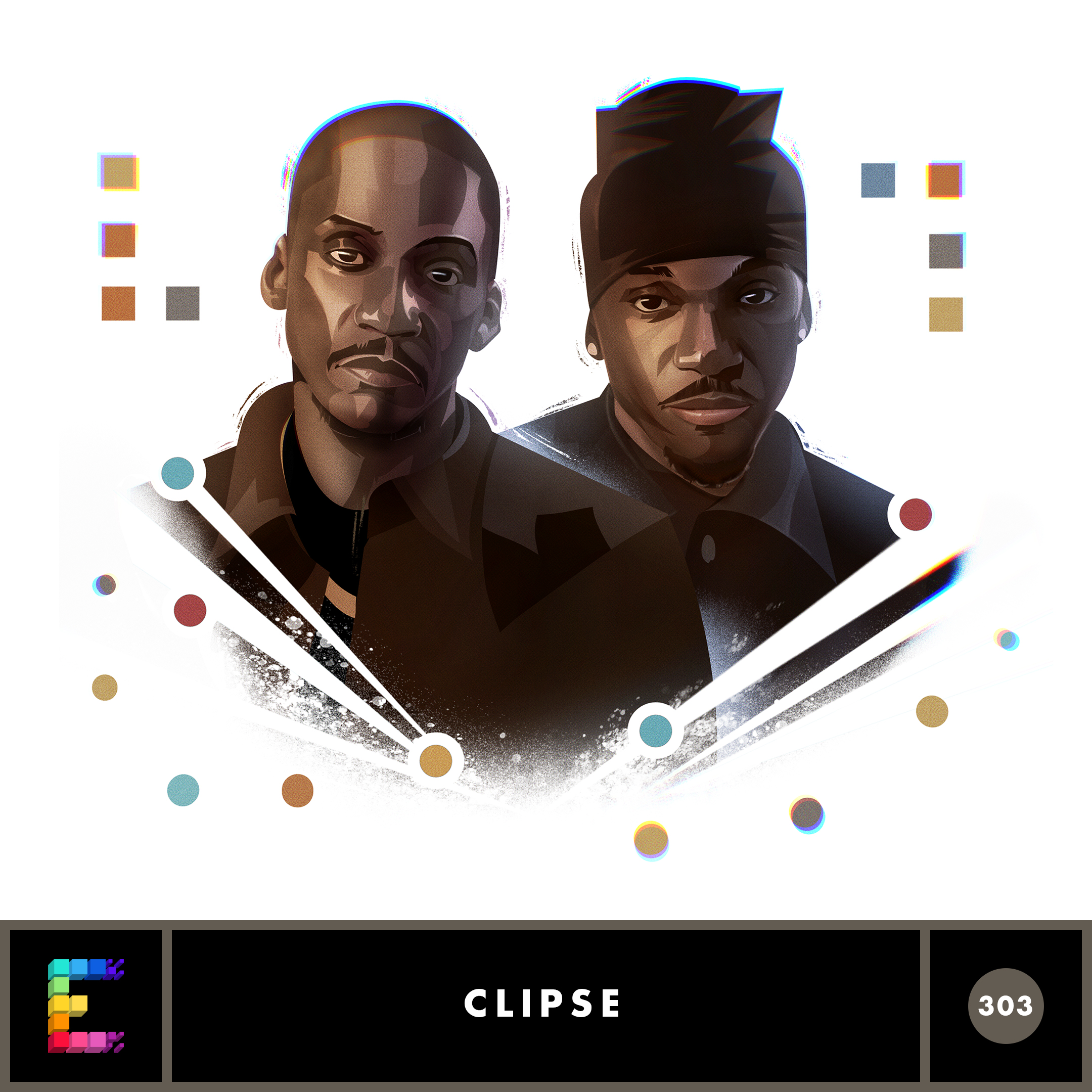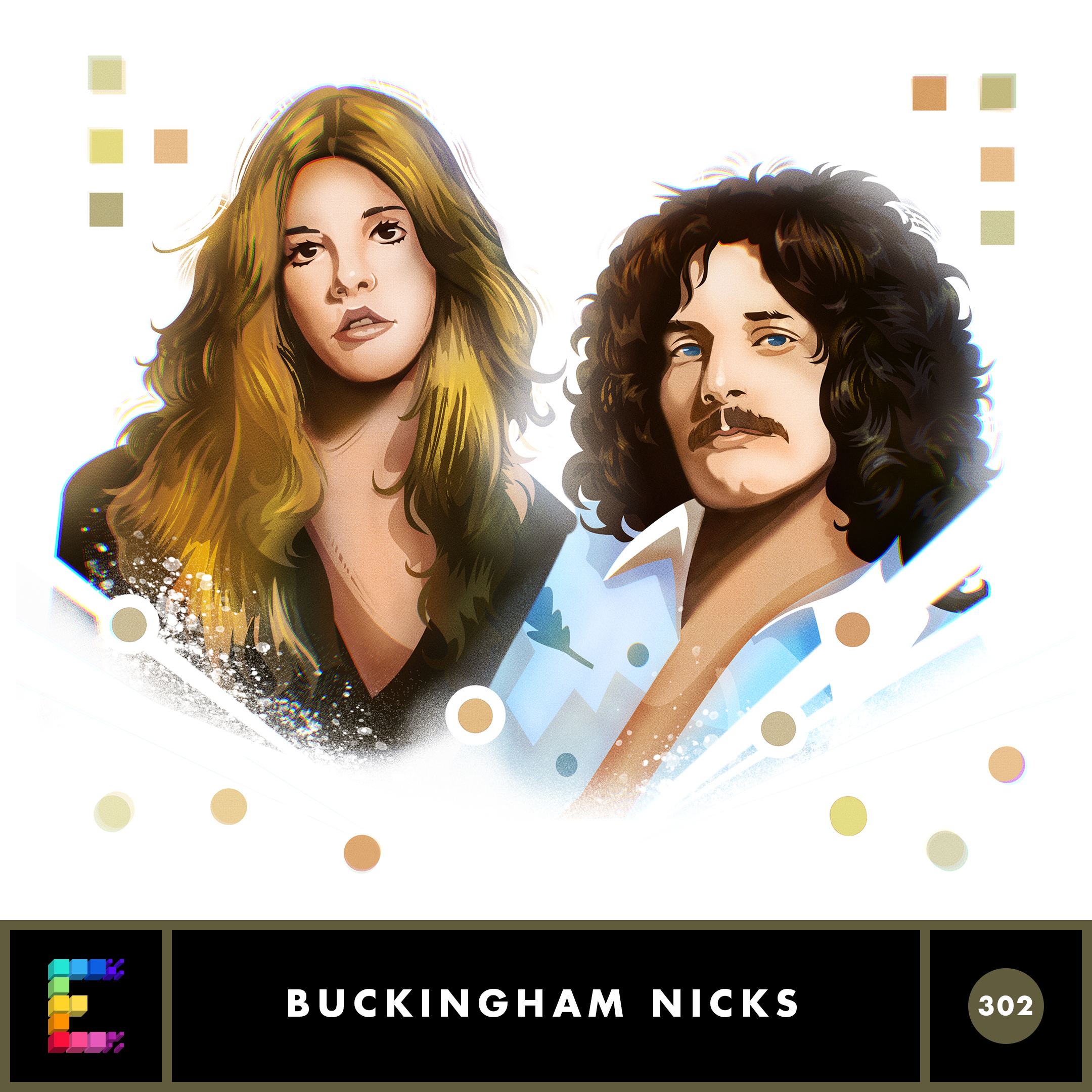Anohni - 4 Degrees
Anohni is a singer and songwriter originally from England, who started putting out music in 2000. She’s released 6 albums, and won the Mercury Prize. She’s also been nominated for two Brit Awards, and an Oscar. For this episode, I talked to her about the song "4 Degrees," from her 2016 album Hopelessness. It might be strange to describe a song about climate change as an anthem, but that’s what I think it is, and it feels more urgent with every passing year. It’s also one of my most listened-to songs. It was produced by two of my favorite electronic musicians: Daniel Lopatin, aka Oneohtrix Point Never, and Ross Birchard, aka Hudson Mohawke. I got to speak to Ross about how he started the track on his own, before it became a collaboration between the three of them. This is an episode that I’ve been trying to make happen since 2016. Here it is.
For more info, visit songexploder.net/anohni.
Thanks to Sonos for their support of the podcast. Check out sonos.com.
Press play and read along
Transcript
Speaker 1 You're listening to Song Exploder, where musicians take apart their songs and piece by piece tell the story of how they were made. I'm Rishikesh, Hirway.
Speaker 1 So I just wanted to say a couple words about how this show works. Song Exploder is part of Radiotopia, which is a group of independent podcasts.
Speaker 2 And if you look around these days, independence is becoming more and more rare.
Speaker 1 Everything from record labels to movies to newspapers, everything is getting consolidated and controlled by a small number of corporations.
Speaker 1 To me, one of the tragedies of this means you get less original, weird, unexpected, and creative stuff out in the world.
Speaker 1 And this podcast is all about celebrating the surprising ways that creativity gets manifested. That's really interesting to me, the way that actual people turn their experiences into art.
Speaker 1 And if you're listening to this, I hope that means it's interesting to you too. But in order to maintain this show and that philosophy, it takes a lot of hustling to keep things going.
Speaker 1 This spiel is part of the hustle, and I hope you'll forgive me for it. But Song Exploder and all the shows at Radiotopia need the support of listeners like you.
Speaker 1 It's the annual Radiotopia fundraiser right now, and we're looking for 1,500 new donors who believe in unique, independent media and the messiness of creativity, and more importantly, just love listening.
Speaker 1
If that's you, please consider making a tax-deductible donation at songexploder.net slash donate. That's songexploder.net slash donate.
Thank you so much for making the show possible.
Speaker 1 I'm so glad to have Quince as a sponsor of the show because I'm leaving for a trip to the East Coast tomorrow and I already know that I'm going to be wearing a sweater that I got from Quince on the plane.
Speaker 1 In my head, I call it my airplane sweater because I always want something that's super cozy and comfortable, but I also want to look like, you know, a grown-up when I'm traveling.
Speaker 1 And Quince had a solution for me in the form of this cashmere waffle quarter button sweater.
Speaker 1 Plus, I love that they work with only factories that use safe, ethical, responsible manufacturing practices.
Speaker 1 So, whether or not you're getting on an airplane anytime soon, get your wardrobe sorted and your gift list handled with Quince. Don't wait.
Speaker 1
Go to quince.com/slash song exploder for free shipping on your order and 365-day returns. It's now available in Canada, too.
That's q-u-in-n-ce-e.com/slash song exploder.
Speaker 1 Free shipping and 365-day returns at quince.com/slash song exploder.
Speaker 1 Anoni is a singer and songwriter originally from England who started putting out music in 2000. She's released six albums and won the Mercury Prize.
Speaker 1 She's also been nominated for two Brit Awards and an Oscar. For this episode, I talked to her about the song Four Degrees from her 2016 album Hopelessness.
Speaker 1 It might be strange to describe a song about climate change as an anthem, but that's what I think it is, and it feels more urgent with every passing year.
Speaker 1 It's also also one of my most listened to songs. It was produced by two of my favorite electronic musicians, Daniel Lopatton, aka 10 Trix Point Never, and Ross Burchard, aka Hudson Mohawk.
Speaker 1 I got to speak to Ross about how he started the track on his own before it became a collaboration between the three of them. This is an episode I've been trying to make happen since 2016.
Speaker 2 Here it is.
Speaker 3 the fish grow belly up in the sea.
Speaker 3 Ignore those leamers, ignore those tiny creatures.
Speaker 3 I wanna see them burn its only four degrees.
Speaker 4 My name is Anoni.
Speaker 4 I'd started working on an album with Dan Lopatten on demos, electronic demos, for a whole array of songs. The record I'd been making with Dan was going to be this kind of spectral electro record,
Speaker 4 but things weren't quite coming into focus.
Speaker 2 Hi, I am Ross Hudson Mohawk.
Speaker 1 How did you first hear Anoni's music and get connected with her?
Speaker 2 It goes back to an after-party that I was at in Glasgow just around the time I had started releasing music. So this would be mid-2000s.
Speaker 2 Someone played me this song called called Hope There's Someone.
Speaker 5 Hope there's someone who'll take care of me
Speaker 5 when I die.
Speaker 5 Will I go?
Speaker 2 You know, it was after a night of partying, and I was like, Oh my god.
Speaker 5 Hope there's someone who'll set my heart free.
Speaker 5 Nice to hold
Speaker 5 when I'm tired.
Speaker 2 Floods of tears.
Speaker 2 And I was like, What on earth is that voice what is this
Speaker 2 I'm always doing these notebooks full of like dream collabs so it being something that I had been thinking about for years and I actually wrote him an email
Speaker 1 Ross found the original email where you said would you like to ever collaborate and he wrote back and said I'm actually finishing up a record and you are somebody I would love to collaborate with but I never reached out because I just figured it would never happen.
Speaker 4 Which is so weird considering he was doing records with like Kanye West at the time.
Speaker 2 But okay.
Speaker 4
But I remember that whole interaction. He is very humble, but he immediately asked me to sing on a song with him for his record.
And we did it. It was a song that we called Indian Steps.
Speaker 4 And then I said, you know, do you have anything else? And he said, oh, actually, a lot of this stuff is just like rejects.
Speaker 4 Like a lot of the big wigs have all like made their way through this old soup and they didn't take it.
Speaker 2 I said, well, I'll take the the leftovers in my head they were like rap instrumentals because that was a lot of what i was doing at that point but they were very melodic and one of the first instrumentals became four degrees
Speaker 2 i actually made it in hawaii and it was during sessions for Kanye stuff.
Speaker 2 We had this little funny studio that's over there that it's in sort of a strip mall but when you enter the actual studio it's like
Speaker 2 oh you're looking out onto the ocean and you know there's like volcanoes around and this kind of thing and so I had a tendency to lean into these sort of like anthemic chord progressions.
Speaker 1 Do you remember what the first sound was that he created for it?
Speaker 2 I think it was the drums.
Speaker 2 I wanted something that is almost orchestral, but it has the punch of an electronic thing.
Speaker 1 Almost like it's like a timpani.
Speaker 2 Yeah,
Speaker 4 to make the drums so hard-hitting. And the reason things felt so ballistic is because that, in the way that people used to double vocal tracks, he would double drum tracks.
Speaker 2 And I was also really obsessed with the horn section in general.
Speaker 2 The important thing for me was it had to almost have like a fanfare quality to
Speaker 2 and so I was programming these chord progressions where
Speaker 2 some of the notes are so close together that the way they interact with each other brings
Speaker 2 another layer of emotion into
Speaker 1 sometimes people program synth versions of orchestral instruments as like a placeholder.
Speaker 1 Was that what you felt like you were doing, or did you specifically prefer the sound of these horns over something actually orchestral?
Speaker 2 I was kind of obsessed at that point with with making things that were programmed, but that you couldn't always tell. Where I liked that uncanny valley,
Speaker 2 is there like 10 guys banging on drums there?
Speaker 2 A hundred people playing here, and this is some huge thing. I liked that confusion.
Speaker 1 I mean, what's this sound?
Speaker 2 Yeah, that's a great, great little synth called syn plant.
Speaker 2 The interface is like a combination of like a plant and a bunch of DNA strands.
Speaker 2 Basically like you can grow a sound out of
Speaker 2 one seed that you plant. It's not that impressive to look at, but I always wanted to use synths and sounds that I knew I wasn't hearing in dance music
Speaker 2 that feels unfamiliar to me in a good way.
Speaker 1 What did you think of Ross's instrumental when you first heard it?
Speaker 4
I was very, very into it, very, very compelled by it. And it was the kind of music I was listening to.
The music I was doing, working with all these other orchestral arrangers.
Speaker 4 I was doing symphonic shows. I did the symphony show at Radio City, Teatro Royale in Madrid, at the Royal Opera House in London.
Speaker 4 I mean, the shows were really elevated and they were beautiful but within two or three years I felt like I'd sort of done it.
Speaker 4 So it was so refreshing to get into electronic beats in a way that I hadn't for a long time.
Speaker 4 Everything came into focus for the album and the project when I heard Ross's demos and they were so ballistic and so seductive.
Speaker 4 It took me out of the role of primary songwriter and put me more into
Speaker 4 the one who devised the message that would be embedded in the song.
Speaker 4 And everything that I've been thinking about for the last several years just
Speaker 4 crawled out of the crevices of my mind.
Speaker 4 It was like my whole last six years plus of obsession with what was going on and the national and global scale just like erupted into lyric.
Speaker 5 It's only four degrees, it's only four degrees.
Speaker 5 It's only four degrees, it's only four degrees.
Speaker 1 Could you just explain the premise of four degrees and where that phrase came from?
Speaker 4 So, about 14 years ago, in the science journals and in consumer-ready science unpackings of global warming, they were delivering us these charts that would say what will one degree of warming look like?
Speaker 4 What will two degrees, three degrees, four degrees, and six degrees? And they always say six degrees warming was the point of no return. The world would become uninhabitable.
Speaker 4 Four degrees, at the time I wrote the song, which was actually 2012, was being described in science journals as an apocalyptic shift in the environment, in the biosphere, in the stratosphere, and in the ways that it would affect us and our civilizations.
Speaker 4 Well, even two degrees promises the end of the coral systems and increasingly forest systems. By the time you get to four degrees, you've pretty much wrapped up
Speaker 4 all of the gentle systems that have taken millions of years to emerge.
Speaker 4 You know, the gentle systems of balance, the very beautiful choreography of interdependence that pours forth when nature is in balance.
Speaker 4 So four degrees was kind of a battle cry, a bugle cry of an apocalyptic future.
Speaker 4 And the idea with the song was to shock people into realizing how perverse it was that we were invoking a level of suffering that we weren't prepared for, the end of life on earth.
Speaker 4 But I was suggesting by saying, let's go, it's only four degrees, I was trying to embody the voice of people that will drive us to extinction in the alcoholic style of denial.
Speaker 4 And the harm that they particularly will will have facilitated will reverberate.
Speaker 4 So, in many ways, I think that was part of the seduction of four degrees for me to take the position of someone that was delighting in this collapse.
Speaker 4 But at the same time, it's not entirely sarcastic because it's also like a more honest reckoning with the reality of my carbon footprint.
Speaker 5 I want to hear the dogs crying for water.
Speaker 5 I want to see the fish go belly up in the sea.
Speaker 4 Yeah, if I want to see the dogs crying for water, I want to see the fish go belly up in the sea because every time I take a plane to do a concert, that's effectively what I'm inviting.
Speaker 4 So there is a voice in me that feels this way, or at least should be feeling this way. If it's not naming it, it's because it's in a state of denial.
Speaker 4 But because of the firewalls of capitalism, I've been shielded from the impacts of my daily footprint in every seamless meal that I eat, in every distance that I travel.
Speaker 1 That's so interesting because I've always heard the first version of what you were talking about, singing from the point of view of like a heartless villain who doesn't care about the effects of climate change or even kind of delights in them.
Speaker 1 But I never thought about the idea that you could be the villain, that this isn't a character that you're making up, but you're you're singing about your own complicit part in all of this.
Speaker 4 It's the most excruciating part because I can't point a finger at Donald Trump and not see a part of myself in him as a passive beneficiary of his brutal policy, just as any white person in America is a beneficiary of all the racist and monstrous policies of imperialism that led to this Goldilocks zone of our petrochemical comforts.
Speaker 4 Because it's not just the voice of the other.
Speaker 4
It is my voice. You know, it is my intention.
And I think that that's something that I've tried quite brazenly to embody this idea that this illness that our society suffered from was also within me.
Speaker 1 My conversation with Anoni and Hudson Mohawk continues after this.
Speaker 1 Song Exploder is sponsored by DistroKit. If you're an independent artist, DistroKit is a great way to get your music distributed.
Speaker 1 You get unlimited uploads and you get to keep 100% of your royalties and earnings.
Speaker 1 There are more than a million artists, including me, who have used DistroKid to get their music into all the major streaming services. Spotify, Apple Music, TikTok, everywhere.
Speaker 1
The DistroKid app is now available on iOS and Android. Go to the app or Play Store to download it now.
And for 10% off your first year's membership, go to distrokid.com slash VIP slash SongExploder.
Speaker 1 I want to thank Function for sponsoring Song Exploder because I've gotten so much out of my Function Health membership.
Speaker 1 It's given me data about what's happening in my body, data that most people never get.
Speaker 1 Most importantly, by learning stuff like my vitamin D level is low and my zinc level is low, I was able to take steps to fix things.
Speaker 1 I had my first lab visit this summer, and now I'm getting ready to go in for my follow-up visit, which is also included in the annual membership.
Speaker 1 So if you're thinking about a gift for someone who you really care about, Function is a great idea. And it shows them that their health matters to you.
Speaker 1
With their membership, they can understand their health and they can make informed decisions all year round. You can own your health for $365 a year.
That's just $1 a day.
Speaker 1 So learn more and join using the Song Exploder link. Visit functionhealth.com slash SongExploder or use the gift code SongExploder25 for a $25 credit towards your membership.
Speaker 1 What was your reaction to what Anoni did with the instrumental you sent her?
Speaker 2 I I remember she's sending the song back to me with some kind of rough vocals that actually
Speaker 2 are about real issues.
Speaker 2 And I was like, God, these are so like heartfelt and beautiful and delicate. And there was so much feeling and emotion in just the recordings of them.
Speaker 1 Is there something that she does vocally in particular that you really love?
Speaker 2 It's at the end of one of the verses where the line is, I want to see them boil.
Speaker 5 I want want to see this world, I want to see it boil.
Speaker 5 I want to see this world, I want to see it boil.
Speaker 2 The kind of vibrato on that boil.
Speaker 2 It's so kind of haunting, but it's so beautiful at the same time. And it's not only the voice, but the delivery.
Speaker 1 Did the instrumental change at all? Did you change it after getting sort of like the first draft or first round of vocals?
Speaker 2 yeah the arrangement changed and we did all of Dan's synth parts oh right the death siren
Speaker 1 yeah this is Daniel
Speaker 2 Dan brought this to bring about this emotional response. He's a master of that.
Speaker 4
Dan is he's such a sensitive composer. Dan's themes are not something I could ever conceive of.
He has
Speaker 4 a very fluid, idiosyncratic grasp of melody and countermelodies that I could never put my finger on.
Speaker 1 What was it like for you to collaborate in this way with, you know, not just one, but two different producers, both of whom have their own very distinct and specific aesthetics?
Speaker 1 What was it like for you to work with both of them together?
Speaker 4 They were amazing together. Hudson actually helped facilitate a more productive relationship between me and Dan because it sort of loosened up my grips about what the creative process should entail.
Speaker 4
And Ross was also like a master of the emotional rush. So between the two of them, they really were quite amazing.
This was really the first album I ever wrote so collaboratively with other people.
Speaker 4 I was so proud of the work that they did. And I felt so supported by them.
Speaker 4 And I think that they caught the fever of the record in a way because there wasn't really anything else saying these things at that time.
Speaker 5 I wanna burn the sky, I wanna burn the breeze.
Speaker 5 I wanna see the animals die in the trees.
Speaker 3 Let's go, let's go. It's only four degrees.
Speaker 3 Let's go, let's go. It's only four degrees.
Speaker 3 Let's go, let's go. It's only four degrees.
Speaker 2 It's actually one of the most personal records to me that I've done.
Speaker 2 It had this sort of gravitas to it and during the making of it, I was unsure if that was going to translate.
Speaker 2 But it really, really worked and it really was like an eye-opener for me. I didn't quite realize the gravity or the magnitude of it at the time of making it.
Speaker 2 Otherwise, I probably would have freaked out and never finished it.
Speaker 2 But the way Anoni interpreted the instrumentals and delivered the vocals, and the way Daniel brought his elements, it was like, oh, these loops that have been sat on my hard drive, they're like alive now, you know.
Speaker 1 Do you believe now in 2025 that art has the power to affect social change?
Speaker 4
I've never believed it actually had the power to affect social change. Really? I don't think it does.
Personally, I don't. But I do think there's power in art.
Speaker 4 I do think there's power in music, especially. It's like the bugle for an army.
Speaker 4 My job was to sing the song of my people, people that are on the front lines of dreaming the most productively about social transformation.
Speaker 4 I went into this project maybe with the delusion that I was going to be confronting power.
Speaker 4 But I think in the end, the people that this music most served were people that felt exactly the same way I do.
Speaker 4 I think it was this album that really made me realize that people don't listen to music that they don't agree with. People listen to music that affirms them.
Speaker 1 Well, the album was called Hopelessness, and I was wondering if that's what you still feel now.
Speaker 4
Yeah, I mean, it's a feeling. I think the word there is feel.
Yeah. Like hopelessness is a feeling.
That's all it is. It's not an indication of what's happening or what's going to happen.
Speaker 4 It's just another feeling. But the feeling isn't that relevant, except in how it motivates you from day to day.
Speaker 4
So if hopelessness as a feeling is disempowering you in your activism or in your engagement, then I would say don't entertain it. For me, I need to like honor all my feelings.
Yeah.
Speaker 4 You know, maybe don't drown in it, but I needed to say it.
Speaker 4 Hope is irrelevant. It doesn't pardon you from the table of the conversation.
Speaker 4 It doesn't pardon you from the anxiety of what's really happening. This is happening and it's continuing to happen.
Speaker 4 And there is no exit strategy for this conversation. So, yes, I feel extremely hopeless.
Speaker 4 And does that matter? No.
Speaker 1 And now, here's Four Degrees by Anoni in its entirety.
Speaker 3 It's only four degrees, it's only four degrees.
Speaker 5 It's only four degrees, it's only four degrees,
Speaker 5 it's only four degrees, it's only four degrees.
Speaker 3 It's only four degrees, it's only four degrees.
Speaker 3 I wanna see this world, I wanna see it more.
Speaker 3 I wanna see this world, I wanna see it more.
Speaker 3 It's only four degrees, it's only four degrees.
Speaker 3 It's only four degrees. It's only four degrees.
Speaker 3 I wanna hear the dogs crying for
Speaker 3 I wanna see the fish throw belly up in the sea
Speaker 3 but all those leavers ignore those tiny creatures
Speaker 3 I wanna see them burning so only four degrees
Speaker 3 But all those rhinos and all those big mammals.
Speaker 3 I wanna see them lying, crying in the fields.
Speaker 3 I want to see them burn.
Speaker 3 I wanna see them burn. It's only four degrees.
Speaker 3 I wanna see them burn. It's only further breeze.
Speaker 3 I wanna see them burn, it's only four degrees.
Speaker 3 I wanna burn them,
Speaker 3 I wanna burn them.
Speaker 3 I wanna burn them,
Speaker 3 I wanna burn them.
Speaker 3 I wanna burn the sky, I wanna burn the breeze.
Speaker 3 I wanna see the animals die dying the trees.
Speaker 3 Let's go, let's go. It's only for the bees.
Speaker 3 Let's go, let's go. It's only for the bees.
Speaker 3 Let's go, let's go. It's only for the bees.
Speaker 3 Let's go, let's go. It's only for the bees.
Speaker 3 I wanna burn them.
Speaker 3 I wanna burn
Speaker 3 I wanna burn them.
Speaker 1
Visit songexploder.net/slash anonym to learn more. You'll find links to buy or stream for degrees.
You'll also find a link to listen to the episode that 10 Tricks Point never did back in 2016.
Speaker 1 This episode was produced by me, Mary Dolan, Craig Ely, and Kathleen Smith with production assistance from Tiger Biscuit.
Speaker 1 The episode artwork is by Carlos Lerma, and I made the show's theme music and logo.
Speaker 1 Song Exploder is a proud member of Radiotopia from PRX, a network of independent, listener-supported, artist-owned podcasts. You can learn more about our shows at radiotopia.fm.
Speaker 1 And if you'd like to hear more from me, you can sign up for my newsletter, which you can find on the Song Exploder website.
Speaker 1 And if you want to support the show in another way, you can get a Song Exploder t-shirt at songexploder.net/slash shirt.
Speaker 1 I'm Rishikesh Hirway.
Speaker 1 Thanks for listening.
Speaker 2 Radiotopia
Speaker 2 from PRX.
